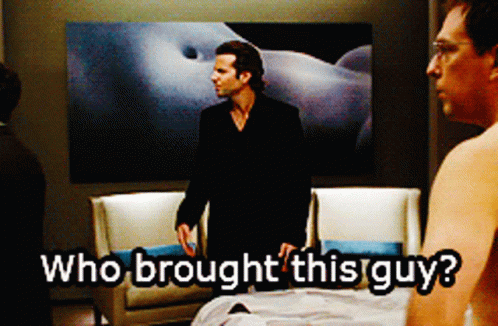You can read Part 1 here.
PART 2: SIDE QUESTS
Putting Kaitiaki in “the drawer” gave me the space I needed to focus on other things. The first, as this blog post describes, was my mental health. Without re-treading that story, I wasn’t where I wanted to be mentally and I just needed some help to put things back on track.
That led me to set my sights on the Masters in Creative Writing course at Victoria University’s International Institute of Modern Letters. It was something I’d always wanted to do: a one-year intensive writing course heavily focussed on workshopping a manuscript with other writers. All I’d been waiting for was the right book to work on.
In that same blog post, I gave an insight into what this book was. Put simply, it was a combination of two ideas: an allegory for colonisation in Aotearoa based on Aliens invading Earth; and a memoir of my experiences working as a public servant. When these two ideas collided, I didn’t really know how well they’d translate to the page. But once I sat down to write a sample to accompany my application, it was as if this book had just been waiting to be written.

What emerged on the page was the clearest, most confident narrative voice I’d ever written with. Set in a future where Aliens had colonised Earth, the sample saw a young idealistic Human who worked for the Alien government visiting a poor community of Humans for a work trip. It was virtually identical to a real work experience I’d had as a young idealistic Māori working for the Crown – just transposed with this alternate, Alien version of Earth. This was why the narrative voice felt so clear to me: it was basically my own.
More than that, it was me at my most critical, cutting, taking-the-piss self. It was a way to take all of the internalised mamae of working for the Crown and turn it into something that made me laugh. That I hoped would make others laugh. Because if I didn’t laugh about it, I’d sure as hell cry about it.
That’s when I realised what this book was going to be. A satire – of contemporary Māori/Pākehā relations and the entire machinery of government.
Whether it was the strength of the sample, the rest of the application, or just a case of right time/right place, I was lucky enough to be accepted into the course. I could probably write a whole series of blog posts about it, but will avoid that temptation for now just to say that it was, in all aspects, a life-changing experience. I think it grew me as a person just as much, if not more than, it grew me as a writer.
I came out the other end of it with not only a complete manuscript that felt like the greatest thing I’d ever achieved, and a Masters degree to boot, but a few key learnings that would be vital to the writing of Kaitiaki.
- Trust the process – this mantra was repeated often by course convenors, supervisors, guest speakers and writers. It typically referred to the course itself, and trusting that it’s designed to push you to create the best work you can. But I think it applies to personal process, too. Trust that your story will go where it needs to. Trust that the corner you wrote yourself into will become a gateway. Trust yourself.
- There’s nothing like a deadline – some people don’t cope well with the pressure of deadlines. I found I thrived on it. Even if it meant writing furiously away into the early hours of the morning, having a timeframe to aim for kept me motivated and disciplined.
- You can’t please everyone – feedback on my work was often contradictory. Something that one person loved was despised by someone else. Sometimes it felt like I just couldn’t win. Which led me to the final learning:
- Only I can write this story – this was probably the most important lesson I learned. Writing is, mostly, a solitary act. We might take inspiration from others, seek others’ feedback on our writing, collaborate with others on a project. Everyone has something valuable to offer. But that doesn’t mean that every bit of advice or feedback will work. I found the best way to strengthen my writing was to be open to everything – to take all criticism, to seek out all advice and guidance, to try anything – but embrace the fact that only I can write the story I want to. Not everything is going to help me do that. The challenge is discovering what will.
*
Aside from the Masters, there was probably one other experience that would be vital for working on Kaitiaki. That was Watched being studied as part of an English literature paper at Victoria University.
It was something I never imagined happening. My book – my first novel – studied by second year English students on a science fiction paper alongside greats such as Octavia E. Butler and Ursula K. Le Guin? What the hell was going on?

I got in touch with the lecturer and offered to come along to one of his classes. He agreed that was a great idea, and a few months later, I was standing in front of the class listening to a lecture about MY book. I was impressed by the direction it took: the lecturer looked at it as a Māori take on science fiction and the superhero genre, exploring how Māori concepts like te Pō, tuakana-teina, and mauri were given expression. When the rākau was passed to me to speak, I was humbled to offer my perspective on the influences that shaped the book, and how these kaupapa Māori manifested in it.
Then the space was opened for questions. The buzzing feeling was quickly dampened when the first question turned out to be not so much a question at all but a thinly-veiled criticism. I don’t even remember exactly what the guy said – something about the twist of the Watchers as bad guys being predictable, and the conflict between the Watchers and the Storm not meeting his expectations.
I just stood there for a few moments, a number of possible responses running through my head. Of course the “twist” was predictable – the whole point is that everyone but Jason, who is desperate to find independence and purpose, thinks the Watchers are dodgy. Plus it’s a book for teenagers and this is a class of second-year university students. I’d be surprised if they didn’t see the twist coming.
I ignored the first point and addressed the second, explaining that the conflict between the Watchers and the Storm isn’t actually the point of the story. It’s a backdrop to the real conflict, which is between Jason and Rory. The guy just double-downed, saying the Watcher/Storm conflict had been built up so he expected it to be delivered on.
In the end I just said something like ‘Oh well, thanks for the feedback’ and moved on.
Although that was definitely the worst of the weirdly-pointed criticism, it kind of didn’t stop there. I received critical questions about my treatment of female characters, which I took on the chin – I responded that I knew, in hindsight, that my writing of female characters in Watched was poor and my own assessment of this was due to all the stereotypical, masculine tropes of the superhero genre that had influenced me growing up. Not that that was an excuse, but in order to address an issue you have to understand its cause, and I hoped that Watched’s sequels would demonstrate my attempts to do better in this area.
I also received a question about making Jesus a super-powered Prodigy, which may not have been a critical question but felt as if it could have been, as if suggesting Jesus was not, in fact, the son of God but a superhero, was inappropriate. And then the first guy came back with another complaint that I hadn’t explored the concept of artificial intelligence further and I just thought, seriously?

It was easy to come away from an experience like that feeling deflated, even angry. What was that guy’s problem? But for all the criticism that felt unfair, there was plenty that felt totally justified. That was the worst part about it. There were legitimate, glaring flaws in Watched. My writing of female characters perpetuated lazy and harmful tropes about women, I relied on cliches like orphan protagonists, my heroes weren’t complex enough.
The same could be said for Exceptional. That Goodreads review and its criticisms of unreadable passages still haunted me.
Taking criticism of this nature is hard. It’s not about the way you’ve worded a sentence or structured a chapter, which you can change easily enough. This is getting at the fundamentals of your work and, really, who you are as a writer and a person. Addressing these types of comments requires deep, raw introspection.
But that’s exactly what the Masters taught me to do. I couldn’t change Watched or Exceptional, but I could make sure that their sequel didn’t commit the same offences. With that thought in mind, in late 2021, I took Kaitiaki back out of the drawer.